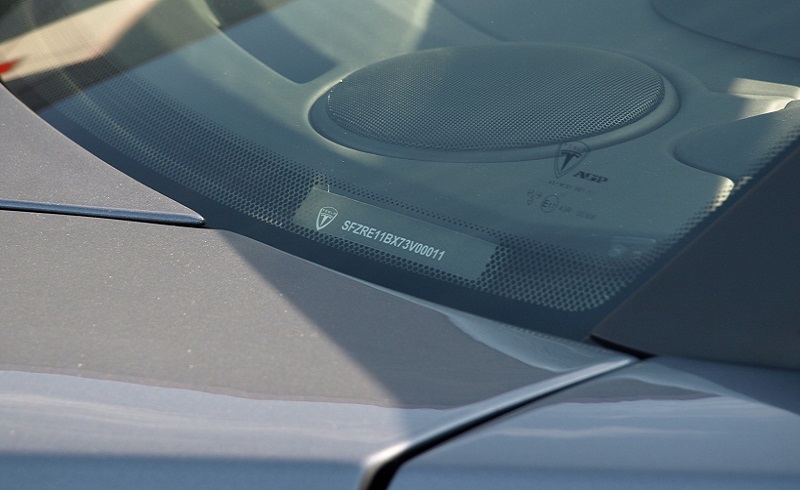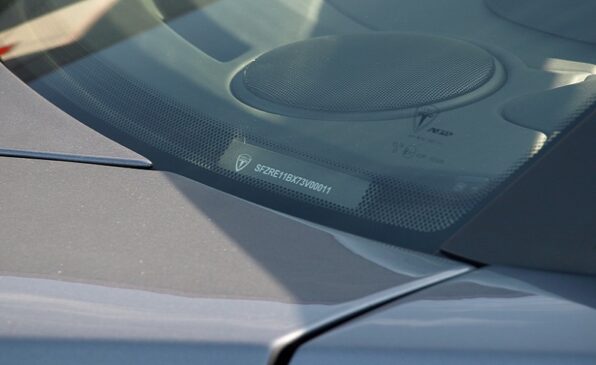The Benefits of Using a VIN Decoder

TechsPlace | A Vehicle Identification Number (VIN) is a unique code, including a serial number, used by the automotive industry to identify individual motor vehicles, towed vehicles, motorcycles, scooters, and mopeds. In this article, we will explore the concept of a VIN decoder, its significance, how it works, and its applications in various sectors.
Understanding the VIN
Before diving into VIN decoders, it is essential to understand what a VIN is. A VIN is a 17-character string of letters and numbers without intervening spaces or the letters Q (q), I (i), and O (o); these are omitted to avoid confusion with the numerals 0 and 1. Each section of the VIN provides specific information about the vehicle. This includes the country of manufacture, the manufacturer, the vehicle type, and the model year.
The Structure of a VIN
The composition of a VIN is based on distinct global standards. Here’s what each character in a VIN means:
- Characters 1-3: World Manufacturer Identifier (WMI)
- Characters 4-8: Vehicle Descriptor Section (VDS)
- Character 9: Check digit
- Characters 10-17: Vehicle Identifier Section (VIS)
The WMI tells you where the vehicle was built and the manufacturer’s identity. The VDS provides model-specific information like engine size and type. The check digit is a complex calculation that helps verify the authenticity of the entire VIN. Finally, the VIS reveals the vehicle’s production number, indicating where it falls in the sequence of vehicles produced at its manufacturing plant.
What is a VIN Decoder?
A VIN decoder is a tool used to translate the code contained within a vehicle’s VIN into a form that can be easily understood by people. It takes each element of the VIN and breaks it down to reveal extensive details about the vehicle.
How Does a VIN Decoder Work?
Using a VIN decoder is straightforward. You enter the VIN, and the decoder checks the information against its database to return all the details encoded in the VIN. The accuracy of the information depends on the database the decoder accesses.
The Benefits of Using a VIN Decoder
- Verification of Vehicle History: A VIN decoder can reveal a vehicle’s history, including past ownership, accident history, and any significant repairs or recalls.
- Used Car Purchases: For those purchasing a used car, a VIN decoder offers an unbiased story of the vehicle, which can help in making an informed decision.
- Recovery of Stolen Vehicles: Law enforcement agencies use VIN decoders to identify stolen vehicles as each vehicle has a unique VIN.
- Compliance and Regulation: Automotive industry professionals use VIN decoders to ensure vehicles comply with local regulations regarding safety, emissions, and type approval.
VIN Decoder in Industries
Automotive Industry
In the automotive sector, manufacturers and dealerships use VIN decoders to track the production and distribution of vehicles. This facilitates efficient recalls and service history tracking.
Insurance
Insurance companies use VIN decoders to assess a vehicle’s risk profile. By understanding the exact features and history of a car, insurers can offer more accurately priced premiums.
Law Enforcement
For law enforcement, a VIN decoder is a crucial tool in vehicle identification necessary for investigating thefts and accidents.
Advanced Applications of VIN Decoders
VIN decoders are evolving with technology. Advanced decoders integrate with large databases that contain real-time data from insurance records, service points, and vehicle registries. This integration allows for a comprehensive view of a vehicle’s history and current status.
Challenges in VIN Decoding
While VIN decoders are beneficial, they face several challenges:
- Data Privacy: With access to extensive data, maintaining privacy and security of the vehicle’s information is crucial.
- Data Accuracy: The reliability of a VIN decoder depends on the accuracy of the database it uses. Outdated or incorrect data can lead to false information.
The Future of VIN Decoders
As we advance towards more connected and autonomous vehicles, the role of VIN decoders will likely expand. Integrating VIN data with telematics and vehicle IoT systems could further enhance vehicle diagnostics, maintenance, and safety measures.
Conclusion
VIN decoders play a vital role in the automotive industry and beyond, offering a lens through which a vehicle’s past, present, and future can be viewed. As technology progresses, the capabilities of VIN decoders will expand, making them even more integral to automotive safety, compliance, and information transparency.
This article provides a comprehensive view of VIN decoders, their importance, and their application across various sectors, underscoring their significance in ensuring vehicle safety and authenticity in the global automotive market.
This article is contributed by guest author on techsplace.com.





